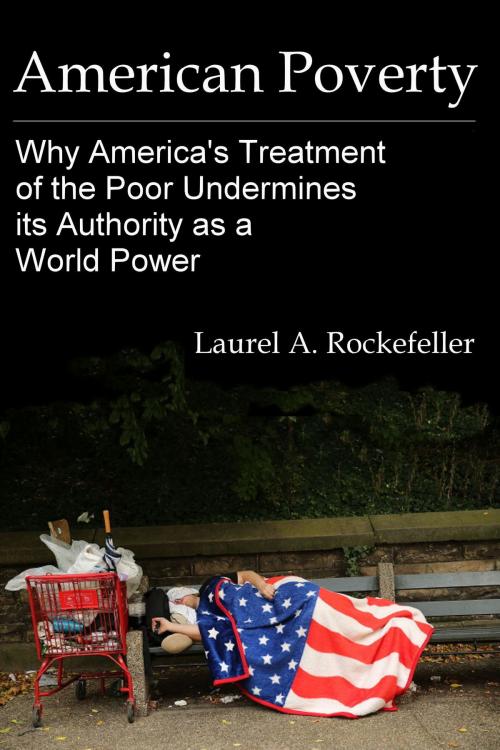American Poverty: Why America’s Treatment of the Poor Undermines its Authority as a World Power
Nonfiction, Social & Cultural Studies, Political Science, Government, Public Policy, Social Science, Sociology| Author: | Laurel A. Rockefeller | ISBN: | 9781310135866 |
| Publisher: | Laurel A. Rockefeller | Publication: | October 12, 2014 |
| Imprint: | Smashwords Edition | Language: | English |
| Author: | Laurel A. Rockefeller |
| ISBN: | 9781310135866 |
| Publisher: | Laurel A. Rockefeller |
| Publication: | October 12, 2014 |
| Imprint: | Smashwords Edition |
| Language: | English |
In 2014 the inability of the Obama administration to deter Russian aggression towards the Ukraine called into question America's international sphere of influence. But what if America's international problems, including terrorism, have less to do with the military and more to do with domestic policies, particularly income inequality and poverty culture? With the richest 1% owning 49% of the wealth in America and a Congress determined to penalize the 99% for not being billionaires, something obviously needs to change for the United States to survive.
In this thought-provoking historical and economic analysis, Laurel A. Rockefeller takes on poverty culture head-on, exploring what it means to poor in the United States while taking a look at how America's closest and much more economically successful allies (Canada, Germany, France, and the United Kingdom) take care of their poor. From housing conditions to hunger to poverty psychology, Ms. Rockefeller takes on the core issues while offering tangible steps everyone of every income bracket can take today to secure America's future and guarantee a secure America for our children.
Part one: essays exploring five facets of poverty in America: a lack of empathy, complacency about poverty, poverty shaming, public housing, and rape culture.
Part two: analysis on how each of us can and should address each facet of poverty, no matter how old or young we are.
Part three: a look at poverty and public policy towards poverty in Germany, France, Canada, and the United Kingdom. Comparative analysis between these US allies and the United States and the impact of poverty on foreign policy and national security.
Sources include: American Express, Forbes, CNN Money, The New York Times, Feeding America, The Shriver Report, Herald Scotland, BBC News, The Joseph Roundtree Foundation, The Huffington Post, and The Toronto Star.
In 2014 the inability of the Obama administration to deter Russian aggression towards the Ukraine called into question America's international sphere of influence. But what if America's international problems, including terrorism, have less to do with the military and more to do with domestic policies, particularly income inequality and poverty culture? With the richest 1% owning 49% of the wealth in America and a Congress determined to penalize the 99% for not being billionaires, something obviously needs to change for the United States to survive.
In this thought-provoking historical and economic analysis, Laurel A. Rockefeller takes on poverty culture head-on, exploring what it means to poor in the United States while taking a look at how America's closest and much more economically successful allies (Canada, Germany, France, and the United Kingdom) take care of their poor. From housing conditions to hunger to poverty psychology, Ms. Rockefeller takes on the core issues while offering tangible steps everyone of every income bracket can take today to secure America's future and guarantee a secure America for our children.
Part one: essays exploring five facets of poverty in America: a lack of empathy, complacency about poverty, poverty shaming, public housing, and rape culture.
Part two: analysis on how each of us can and should address each facet of poverty, no matter how old or young we are.
Part three: a look at poverty and public policy towards poverty in Germany, France, Canada, and the United Kingdom. Comparative analysis between these US allies and the United States and the impact of poverty on foreign policy and national security.
Sources include: American Express, Forbes, CNN Money, The New York Times, Feeding America, The Shriver Report, Herald Scotland, BBC News, The Joseph Roundtree Foundation, The Huffington Post, and The Toronto Star.















